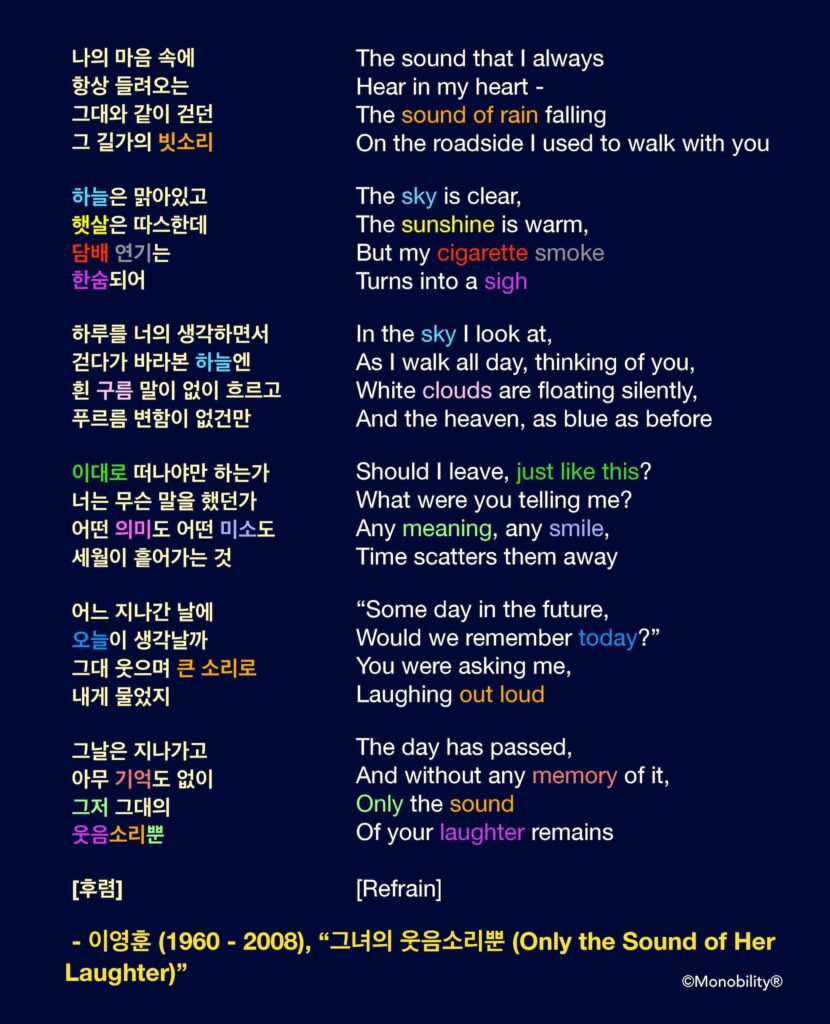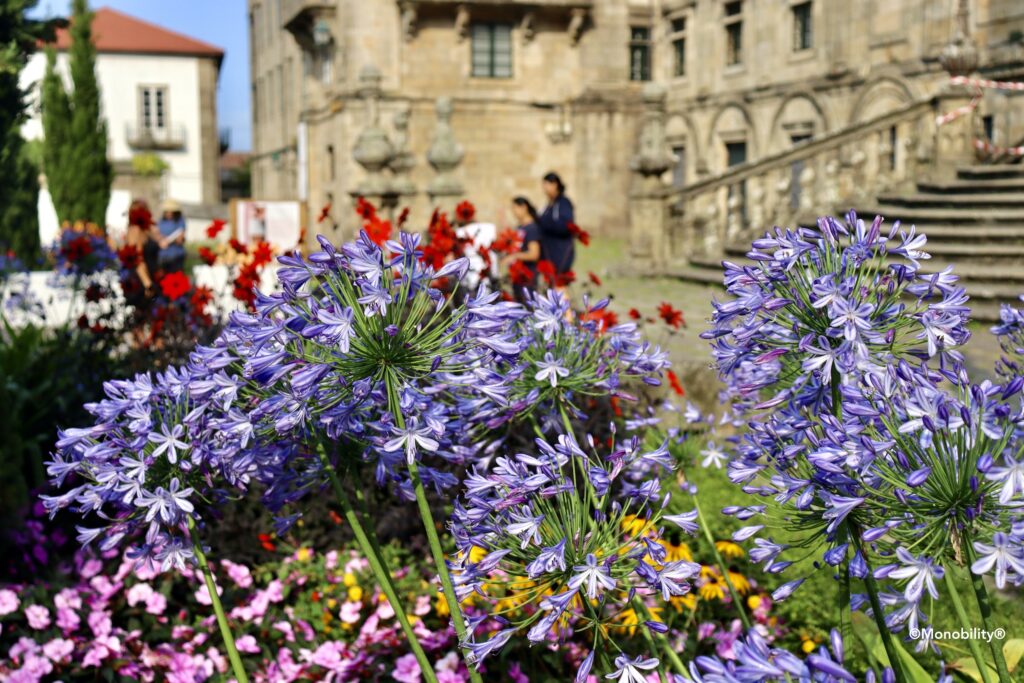Ludwig van Beethoven. Frédéric Chopin. Johann Sebastian Bach. Wolfgang Amadeus Mozart. In classical music, everyone knows a few names of composers. Coming from another corner of the Far East, even I know some of them. But I always found it interesting that in the genre of popular songs, however, people don’t seem to care much about who composed the songs. They only know the names of the singers. Well, except when the composer made a lot of great songs throughout his career.
The legendary composer and lyricist 이영훈 (1960 – 2008) is one of such few exceptions in the Korean popular music world. Brimming with delicate emotions expressed with romantic sensibility in poetic lyrics, many of his greatest hits revolutionized the genre of Korean lyrical “ballads” in the late 80’s and 90’s. His songs were popularized mainly by the #1 ballad singer 이문세’s amazing interpretations. Many other singers and the general public still actively sing them.
In one of his famous songs “그녀의 웃음소리뿐 (Only the Sound of Her Laughter),” 이영훈 sings of a man trying to remember and bring back his lost love, with memories fading away. In the lyrics below, you can find that the word 소리 (sound) appears three times as if the man were trying hard to bring them back, leaving a deep pathos lingering like an echo in the ears of the audience:
- 빗소리 sound of rain [ 비 rain + 소리 sound => 비 + ㅅ (consonantal reinforcement) + 소리 => 빗소리 ]
- 큰 소리로 loudly, in a loud voice [ (noun)-로 with … (means) ]
- 웃음소리 sound of laughter [ 웃음 laughter + 소리 sound ]
Koreans often use an adverb 그저 to say “just, only, nothing but …” as if trying to say something with a certain humility or in a self-deprecating manner. As a particle following a noun or a verb-(을/ㄹ), “-뿐” can also signify “only, none but (something)”.
- 인생은 외롭지도 않고 그저 잡지의 표지처럼 통속하거늘 Life is not even lonely, but just commonplace like the cover of a magazine [ from 박인환’s poem “목마와 숙녀 (The Wooden Horse and the Lady)” ]
- 난 그저 널 도와주려고 싶었을 뿐이야 I just wanted to help you.
- 그저 그대의 웃음소리뿐 Nothing but the sound of your laughter (remains)
As with other content, I tried hard to translate the lyrics word for word as much as I can. I believe that keeping the original meaning and syntax of Korean words and sentences is the best way to help learners of Korean. Besides, it is the last thing that anyone can do to honor the legendary composer and lyricist and respect his influential creative work.

[ Duet 2016 ]
[ Cover 2020 ]
Check out our Facebook for much more:



